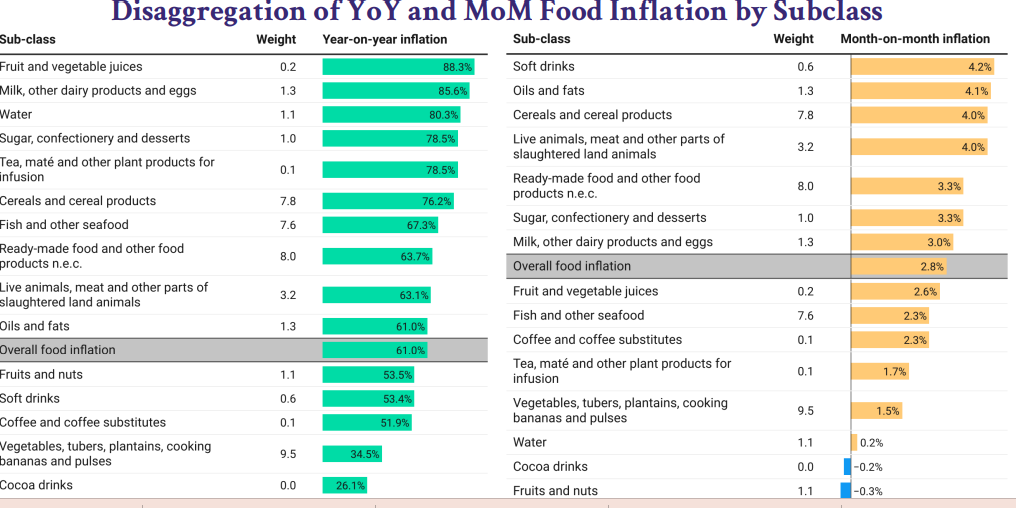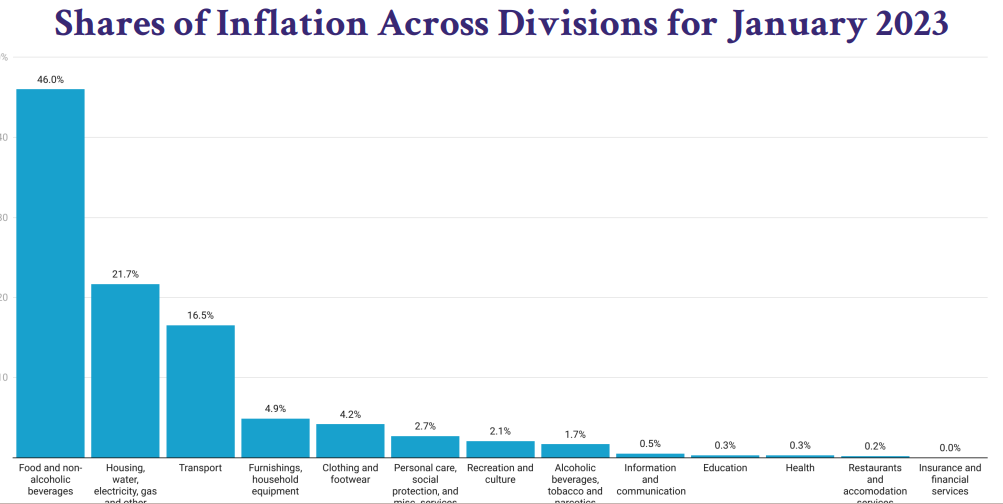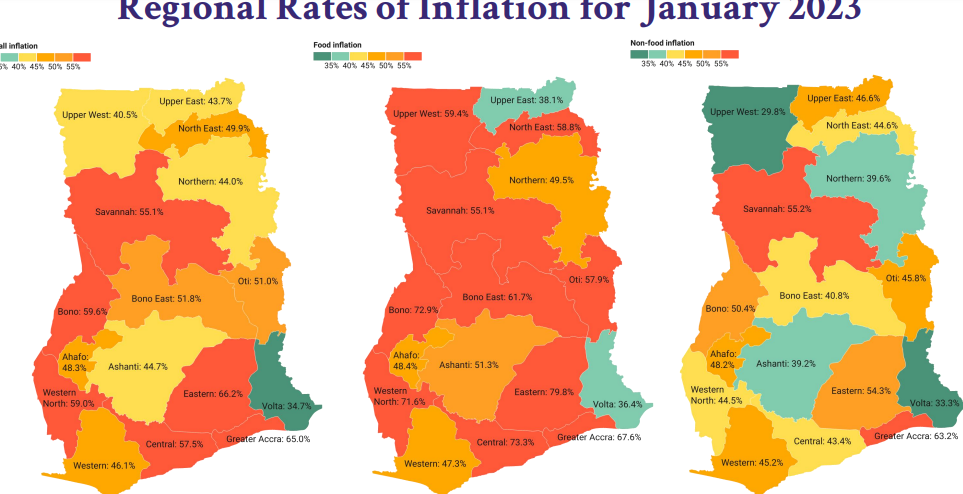Inflation fell marginally to 53.6% in January 2023, from 54.1% recorded in December 2022, latest data from the Ghana Statistical Service has revealed.
This is the first time in 19 months that inflation has dropped.
According to the figures, the rising food prices pushed the Consumer Price Index (CPI) up.
However, transport inflation fell for the first time in several months due to the reduction in fuel prices during the period. Prices of non-food items also declined during the period.
According to the figures, five divisions registered inflation higher than the national average.
They are Furnishings, household equipment (71.7%); Housing, water, electricity, gas and other (71.1%); Transport (68.8%); Personal care, social protection and miscellaneous services (63.1%) and Food and non-alcoholic beverages (61.0%).

Food inflation inched up to 61.0% in January 2023, from 59.7% recorded in December 2022.
Non-food Inflation declined to 47.9% in January 2023, from 49.9 % recorded in December 2022.
While, inflation for locally produced items was 50.0%, inflation for imported items was 62.5%.

High inflation to keep lending rates elevated
The high inflation will keep lending rates still high at an average of about 35%. This means the cost of borrowing will still remain elevated.
Again, the banks will adopt a strict credit risk policy in lending to businesses and households.

Eastern region records highest inflation
With regard to the regions, Eastern region recorded the highest year-on-year inflation of 66.2%.
Greater Accra followed suit with an inflation of 65%.
Volta region however recorded the lowest inflation of 34.7%.

Comments